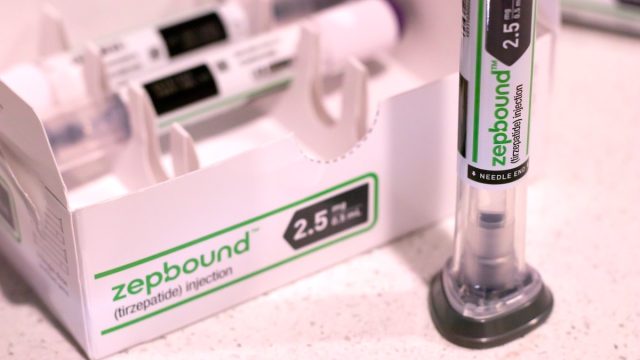Researchers Say This Popular Weight-Loss Drug Can Keep You Slim for 3 Years and Counting

It’s probably safe to say that weight-loss drugs aren’t going anywhere any time soon. According to the most recent data, six percent of American adults, or roughly 16 million people, take such medications—and about half of the U.S. population approve of using these drugs (many of which, like Ozempic, are only approved to treat type 2 diabetes) to treat obesity.
However, separate data paints a more complex picture: A Feb. 2025 study found that 65 percent of people taking these medications for weight loss discontinued use within one year. Researchers concluded that the issue was cost, as these drugs are typically only covered by insurance for diabetes. Otherwise, they can run $1,000 or more a month.
A separate study published in May 2024 provided a similar picture, noting that between 50 and 75 percent of people taking these drugs stopped within a year. These researchers pointed to cost, too, but they also hypothesized that patients were only looking for a quick fix when using glucagon-like peptide-1 receptor agonists (GLP-1 RAs), such as Novo Nordisk’s brand names Wegovy and Ozempic.
But a new set of data about a different weight-loss drug could right these expectations. Scientists found that tirzepatide, better known by the brand names Zepbound and Mounjaro, “can produce clinically meaningful and sustained weight loss for at least 3 years in adults with overweight or obesity who do not have diabetes.” But even more noteworthy is that the study showed that most tirzepatide patients only regain five percent or less from their lowest weight after this three-year mark.
RELATED: What Really Happens If You Stop Taking Ozempic, Doctors Say.
How does tirzepatide help with weight loss?
First, let’s break down the most common weight-loss drugs available in the U.S.
Pharmaceutical company Novo Nordisk manufactures Ozempic and Wegovy. Both are semaglutide injections, but the former is only approved by the Food and Drug Administration (FDA) to treat type 2 diabetes, while the latter is approved for weight loss.
Fellow pharmaceutical company Eli Lilly manufactures the tirzepatide injections Mounjaro (approved for diabetes) and Zepbound (approved for weight loss).
However, it should be noted that many people take Ozempic and Mounjaro off-label for weight loss.
As Best Life previously explained, “Like semaglutide, tirzepatide targets the glucagon-like peptide-1 (GLP-1) receptor to help regulate appetite and reduce calorie intake. But tirzepatide…targets the gastric inhibitory polypeptide (GIP), too, which is thought to play a role in food intake as well. The medication also stimulates insulin secretion.”
Previous studies have shown better weight-loss results with tirzepatide over semaglutide.
Three previous studies have shown better weight-loss results with tirzepatide than semaglutide.
The first, published in July 2024, found the following to be true, according to a press release:
- Those taking tirzepatide were 1.8 times more likely than those taking semaglutide to achieve 5 percent weight loss
- 2.5 times more likely than those taking semaglutide to achieve 10 percent weight loss
- And 3.2 times more likely than those taking semaglutide to achieve 15 percent weight loss
New research concludes that tirzepatide can keep weight off for 3 years, with little regain.
The takeaway:
There are two main mechanisms to deliver weight-loss drugs: Semaglutide, used in Ozempic and Wegovy, and tirzepatide, used in Mounjaro and Zepbound. However, a growing body of research shows that tirzepatide can produce more meaningful weight-loss results than semaglutide.
The latest data concluded that taking tirzepatide resulted in “clinically meaningful and sustained weight loss for at least 3 years,” and it also led to limited weight gain.